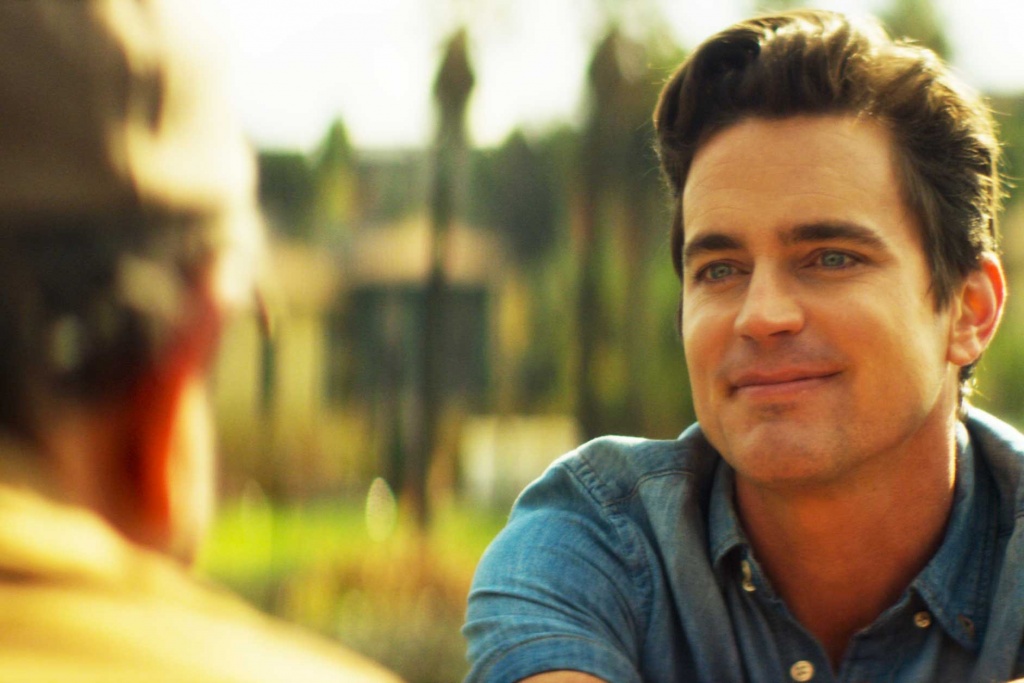Out gay filmmaker John Butler’s poignant comedy-drama, “Papi Chulo,” centers on a lonely Los Angeles weatherman trying to recover from a relationship that has ended.
Opening June 14 at Landmark Ritz at the Bourse, this modest film starring Matt Bomer as Sean is like any new relationship: It starts out promisingly with a few awkward moments but, as it develops, becomes heartfelt and affecting.
The secret is that Butler, who previously helmed the amusing “Bachelor Weekend” (a.k.a. “Stag”) and the fantastic “Handsome Devil,” excels at making bromances that depict platonic relationships between men.
When Sean has a meltdown on air, he is asked to take some time off and is repeatedly encouraged to talk to someone.
But Sean is no good at being alone. And he’s not great with other people. He hasn’t learned how to take care of himself or fill his time with things he loves. In fact, Sean doesn’t know what he loves — but he certainly doesn’t love himself.
Bomer, who is on screen in almost every scene, delivers a remarkable performance. He captures Sean’s goofiness — accident-prone, desperate to please others and needy like a puppy. He comes across as rather childlike at times. Sean is uncomfortable with whom he is at this stage in his life and often denies being a TV personality when recognized in public.
While he has a good heart and calls out people who behave insensitively, Sean is a broken man. Although his relationship with his ex, Carlos, ended six months ago, he still calls Carlos’ cell frequently and leaves messages for him.

Sean lives alone in a nice house in the hills with a great view, but it feels sterile and empty. When two women pick up a tree on his deck, Sean finds an unpainted circle that represents the “hole” in the life he needs to fill.
Butler isn’t subtle with his metaphors. There are several on-the-nose musical selections while a much-discussed drought begets the predictable, emotionally cleansing rainstorm.
At his local hardware store, Sean eyes a group of day laborers and hires Ernesto (Alejandro Patiño) to help him paint his deck. While Ernesto doesn’t speak much English and Sean knows only un poco español, the two are able to communicate well enough to get along.
Sean sees this arrangement with Ernesto as a kind of rebound relationship. He may be paying the laborer for his time and work, but he is more interested in hanging out with Ernesto — in a boat on a lake or hiking up a mountain — than getting the deck finished.
And it’s during these outings that Sean, who has been long unable to express his emotions, talks candidly about his real feelings.
Sean calls Ernesto “a good listener,” but the Latino immigrant is, of course, blithely unaware of what the unhappy gringo is saying about his self-loathing, his failed relationships and his attitudes about his job.
Butler includes some amusing scenes where Ernesto calls his wife, Linda (the marvelous, if underused, Elena Campbell-Martinez), to explain how he is spending his time with Sean, and her ability to size up each situation is delightful.
While there are only a few scenes that feature Ernesto alone, they reveal his dignified character. Patiño underplays his role nicely, especially when Ernesto suffers micro-aggressions from white folks or is embarrassed by Sean’s behavior.
“Papi Chulo” pivots on Sean’s efforts to find happiness. The film is truly charming when Sean and Ernesto sing along to Madonna’s “Borderline” in the back of a Lyft.
Unfortunately, Sean wants more to their “friendship” than Ernesto does, and when the men are apart for a few days, Sean becomes unstable. There is an interesting scene where Sean tries to hook up with a hot guy only to sabotage it.
But even when Sean embarrasses himself — he is twice seen drunk and bleeding from the face — he is sympathetic (if also pathetic). Bomer makes Sean’s pain palpable, which adds to the film’s gracefulness.
“Papi Chulo” may be sentimental, but its appeal is in its simplicity. The film succeeds because the characters are honest and uncomplicated.
Also refreshing is the lack of issue regarding the characters’ sexuality. “Papi Chulo” judiciously captures the desperation of an adult gay man being unable to connect in a community where people are often judged by their appearance. It’s not radical that Sean wants an older, stable, average guy as a partner. That his needs are not sexual — he craves an emotional attachment — will resonate with many viewers.
Butler has created a feel-good film about the power of friendship to help someone cope with sadness.
